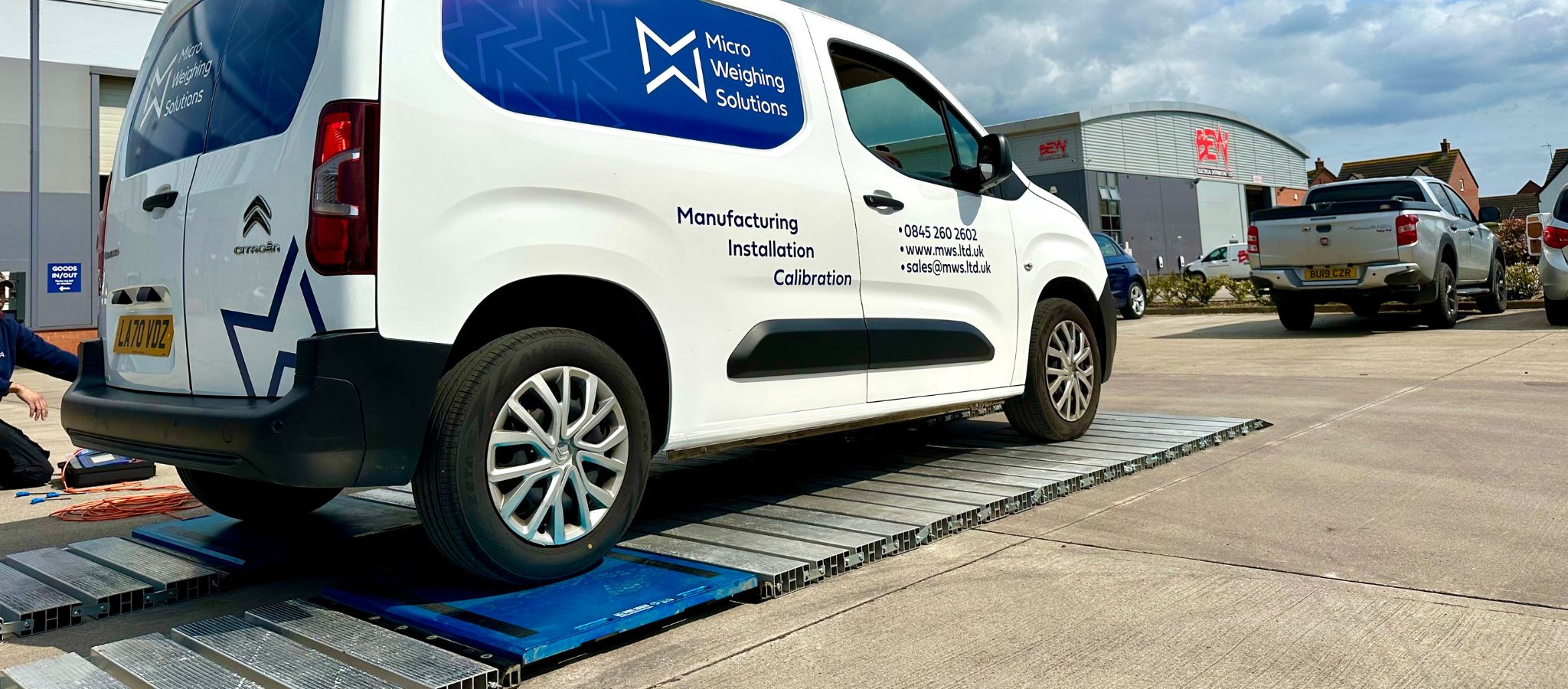Don’t Get Caught Overloaded: The Alarming Risks of Neglecting Weigh Pad Calibration
If you’re using weigh pads, chances are you’re already aware of their importance in keeping your vehicle within legal weight limits. But simply owning weigh pads isn’t enough; regular yearly calibration is crucial to ensure they provide accurate measurements. Without proper calibration, you’re putting your business at serious risk.
The Risks of Skipping Calibration
Recently, we’ve seen a sharp increase in roadside checks by authorities across the UK, targeting overloaded vehicles. The consequences of being caught with an overloaded van can be severe, leading to:
- Hefty Fines: Penalties for overloaded vehicles can range from hundreds to thousands of pounds, depending on the severity of the overload.
- License Points and Suspensions: Drivers can receive penalty points, risking their license and potentially facing a suspension.
- Insurance Issues: In the event of an accident, an overloaded vehicle may void your insurance policy, leaving your business exposed to costly claims.
What’s particularly concerning is that drivers are held responsible for the weight of their vehicle, regardless of who loaded it. This means even if your vehicle is loaded by a third party, you could still face penalties if it’s found to be overweight. So, what’s the point of having weigh pads if they’re not accurate enough to protect you from these risks?
The Importance of Calibration
Weigh pads are precision instruments designed to help you avoid these exact problems. However, like any piece of equipment, they can drift out of calibration over time due to regular use, environmental factors, or mechanical wear and tear. If your weigh pads aren’t accurately calibrated at least once a year, you could be unknowingly operating over the legal weight limit – making those increased police checks even more of a threat.
Simply put, uncalibrated weigh pads are unreliable. The costs associated with potential fines, vehicle damage, and legal repercussions far outweigh the minor inconvenience of regular calibration.
How Easy Is Calibration?
At MWS, we make the calibration process as straightforward as possible. Here’s how it works:
- Send Your Weigh Pads to Us: Just ship your weigh pads to the MWS factory in Leicester.
- We Calibrate to the Highest Standards: We use a 10 Tonne force calibration rig, testing with a reference load cell kit that’s certified to ISO 17025. This ensures your weigh pads meet stringent accuracy standards.
- Quick Turnaround: We understand time is money, so we aim for a quick turnaround to get your weigh pads back in action as soon as possible.
Why Choose MWS for Weigh Pad Calibration?
- ISO 9001 Certification: Ensures our processes are consistent, reliable, and of the highest quality.
- Specialist Equipment: Our 10 Tonne force calibration rigs are specifically designed to test and calibrate weighing pads to the highest accuracy.
- Experienced Team: Our technicians are trained and experienced in handling a wide range of vehicle weighing equipment, giving you peace of mind that your weigh pads are in safe hands.
Don’t Risk It
It’s clear that regular calibration is essential to maintaining the accuracy of your weigh pads and staying compliant with UK regulations. Without it, you’re gambling with the safety of your fleet and the future of your business. So why risk it? Ensure your weigh pads are doing their job correctly and protecting you from fines and penalties.
Contact MWS today to arrange a hassle-free calibration service, and keep your fleet compliant and safe on the road.





















